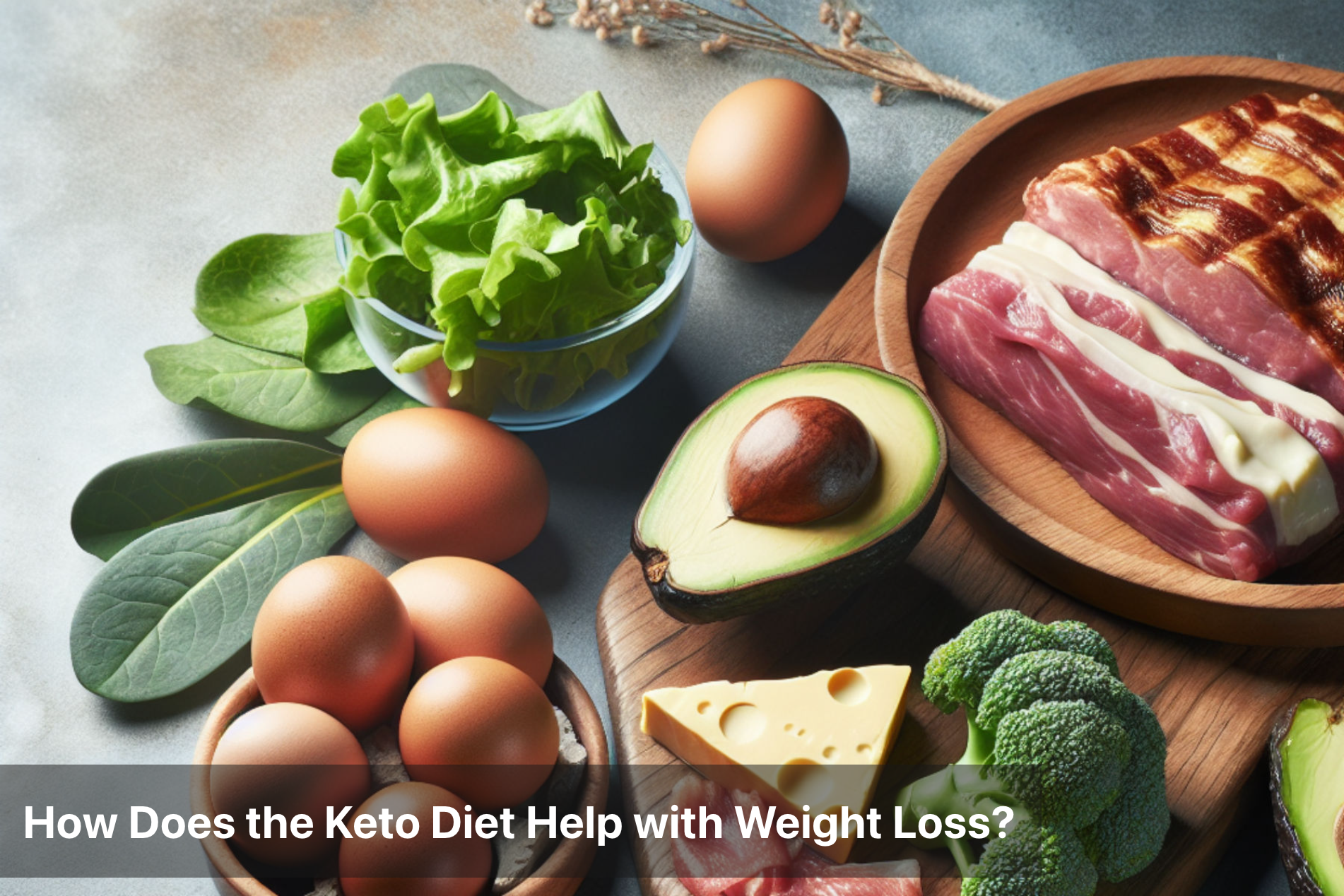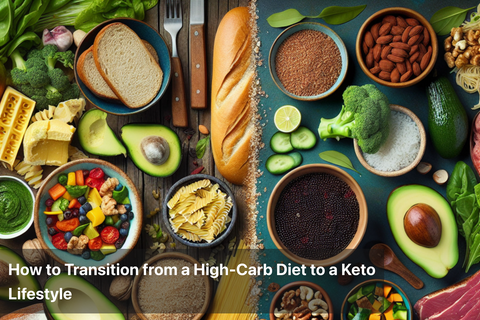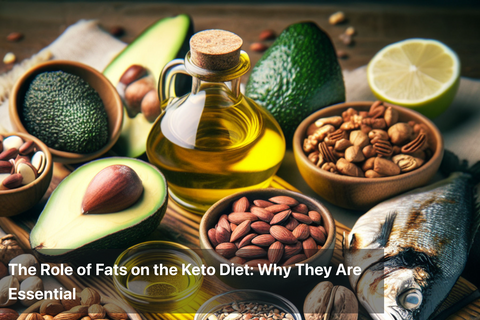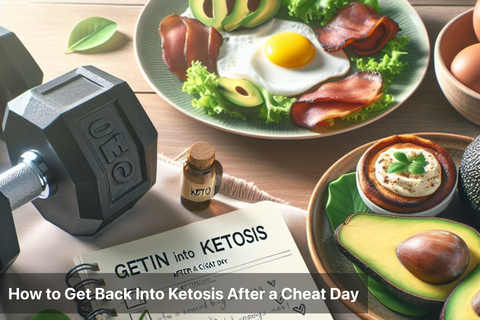
How Does the Keto Diet Help with Weight Loss?
The ketogenic (keto) diet has gained immense popularity as a powerful weight loss strategy. This low-carb, high-fat diet shifts the body's metabolism, forcing it to burn fat for energy instead of carbohydrates. Originally developed to treat epilepsy, the keto diet has now become a mainstream method for shedding excess pounds and improving overall health. But how does it work, and why is it so effective?

Understanding Ketosis: The Science Behind Keto
The keto diet revolves around the process of ketosis, a metabolic state in which the body burns fat for fuel instead of carbohydrates. Normally, the body relies on glucose (from carbohydrates) for energy. However, when carb intake is drastically reduced (typically below 50 grams per day), the body turns to stored fat for energy, breaking it down into molecules called ketones. These ketones become the primary energy source for the brain and muscles, leading to efficient fat burning and, ultimately, weight loss.
How the Keto Diet Helps with Weight Loss
1. Reduces Appetite and Cravings
One of the biggest hurdles in weight loss is controlling hunger. The keto diet naturally suppresses appetite due to:
Increased fat and protein intake, which are more satiating than carbs.
Ketones acting as appetite suppressants.
Stabilized blood sugar levels, preventing hunger spikes.
2. Boosts Fat Burning
By eliminating carbohydrates, the body switches to burning fat for energy, leading to rapid fat loss. This is particularly beneficial for reducing stubborn belly fat.
3. Enhances Insulin Sensitivity
Insulin is the hormone responsible for regulating blood sugar levels. A high-carb diet can cause insulin spikes, leading to fat storage. The keto diet lowers insulin levels, reducing fat accumulation and making it easier for the body to burn stored fat.
4. Prevents Energy Crashes
Unlike high-carb diets that cause sudden spikes and drops in energy, the keto diet provides a steady energy supply. Since ketones are a more efficient fuel source, individuals on keto often experience sustained energy levels throughout the day.
5. Preserves Lean Muscle Mass
While many traditional weight-loss diets lead to muscle loss, the keto diet helps preserve lean muscle. The body burns fat while sparing muscle tissue, which is essential for maintaining strength and metabolism.
Additional Health Benefits of the Keto Diet
Aside from weight loss, the keto diet offers several other health advantages:
Improves Mental Clarity and Focus: Ketones are a superior energy source for the brain, reducing brain fog and enhancing concentration.
Regulates Blood Sugar Levels: The keto diet helps manage type 2 diabetes by lowering blood sugar and improving insulin resistance.
Reduces Inflammation: Ketones have anti-inflammatory properties, which can help alleviate chronic pain and conditions like arthritis.
Enhances Heart Health: A well-balanced keto diet can improve cholesterol levels and reduce the risk of heart disease.
How Much Weight Can You Lose in a Month with Keto?
-
First Week: 4–10 Pounds (Mostly Water Weight)
Due to reduced carbohydrate intake, the body sheds excess water as glycogen stores are depleted.
This rapid loss is not purely fat loss but a mix of water weight and some fat.
-
Weeks 2–4: 1–2 Pounds Per Week (Fat Loss Begins)
As the body fully adapts to ketosis, fat burning becomes the primary source of energy.
On average, individuals lose 4–8 pounds in this phase, depending on calorie intake and activity level.
-
Total Weight Loss in a Month: 8–15 Pounds (Varies by Individual)
Those with higher starting weights may lose 15+ pounds, while individuals closer to their ideal weight may lose 5–10 pounds.
A consistent caloric deficit and staying in ketosis are key to maximizing fat loss.
Factors That Influence Weight Loss on Keto
Starting Weight: Heavier individuals typically lose more weight initially.
Activity Level: Regular exercise accelerates fat loss.
Strictness of Diet: Sticking to low-carb, high-fat intake is essential for ketosis.
Hydration & Electrolytes: Proper hydration helps prevent stalls in weight loss.
Caloric Intake: Even on keto, eating too many calories can slow weight loss.

Common Challenges and How to Overcome Them
While the keto diet is effective, it comes with some challenges:
1. Keto Flu
Some people experience flu-like symptoms in the first few days as their body adapts to ketosis. Symptoms include fatigue, headache, nausea, and irritability.
Solution: Stay hydrated, consume electrolytes (sodium, potassium, magnesium), and gradually reduce carb intake before starting keto.
2. Nutrient Deficiency
Eliminating certain food groups may lead to deficiencies in vitamins and minerals.
Solution: Eat a variety of keto-friendly vegetables, nuts, seeds, and take supplements if necessary.
3. Digestive Issues
Some people experience constipation or digestive discomfort when starting keto.
Solution: Increase fiber intake with low-carb vegetables and drink plenty of water.
4. Difficulty in Sticking to the Diet
Avoiding carbs can be challenging, especially in social situations.
Solution: Plan meals ahead, find keto-friendly alternatives, and educate yourself about hidden carbs.
The keto diet is a powerful weight loss tool that works by shifting the body's metabolism to burn fat instead of carbs. It reduces hunger, boosts fat burning, enhances insulin sensitivity, and provides steady energy levels. While the diet comes with challenges like keto flu and carb cravings, these can be managed with proper hydration, nutrient-rich foods, and meal planning.
With its proven effectiveness and additional health benefits, keto remains one of the most popular dietary approaches for sustainable weight loss. However, as with any diet, consistency, patience, and mindful eating are key to long-term success. If you're considering keto, make sure to tailor it to your lifestyle and nutritional needs for the best results!
FAQs
1. How long does it take to enter ketosis?
Most people reach ketosis within 2–7 days of starting the diet, depending on carbohydrate intake and individual metabolism.
2. Can I eat carbs occasionally on keto?
A strict keto diet requires staying below 50 grams of carbs per day. However, some people follow a cyclical keto diet, where they incorporate occasional carb days.
3. Will I regain weight if I stop keto?
If you return to a high-carb diet without proper transition, you may regain weight. It’s best to shift to a balanced low-carb or moderate-carb diet after reaching your goal.
4. Is the keto diet safe for everyone?
Keto is generally safe for healthy individuals, but those with medical conditions (like diabetes or kidney disease) should consult a doctor before starting.
This Blog post is an initiative by Lo! Foods, to provide accurate and Nutritionist / Doctor approved information related to Health. Lo! Foods is India's leading brand for Everyday Functional Foods. Foods designed for specific Health conditions or Needs. Lo! Foods also runs India's largest range of Low Carb Healthy Cloud Kitchens, under the brand names of Lo!, ProteinChef, ATH (All Things Healthy) and DiabeSmart.













Leave a comment
Your email address will not be published.